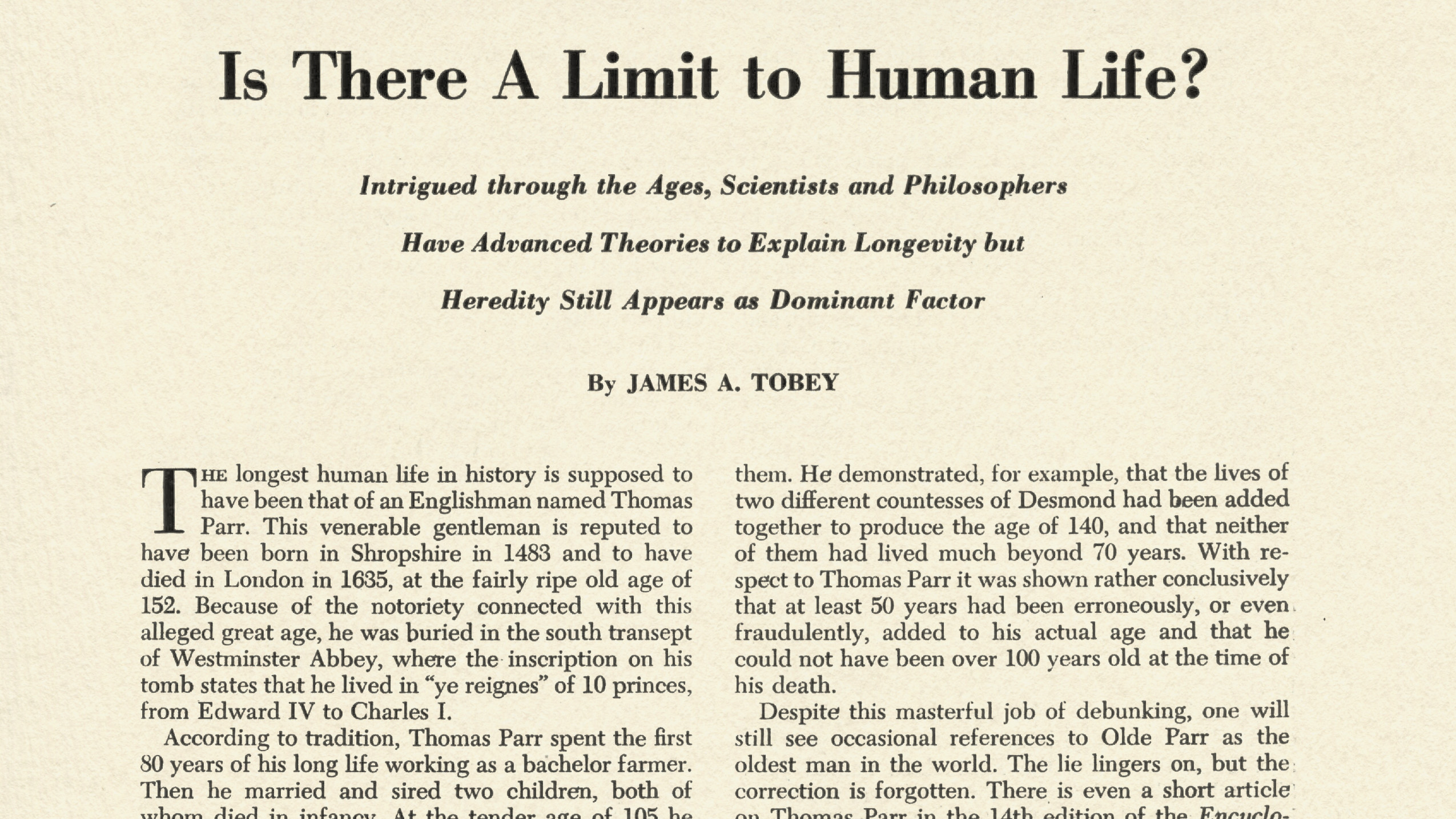Is there a limit to human life?
MIT Technology Review has been asking this question on and off for decades. Here’s a look at one attempt at an answer, from 1954.

People have always been fascinated with the question of human longevity. In this 1954 piece for Technology Review, James A. Tobey, author of more than a dozen books on public health, including Your Diet for Longer Life (1948), noted that despite a few frauds claiming to be older than 150, “the consensus of scientific opinion is that there is a definite limit to human life, a limit now and perhaps forever in the vicinity of 100 years.”
In 1954, the average life expectancy of an American at birth had risen to 68 years from 47 in 1900. But most of the advances came not from old people living longer but from infants avoiding death before their first birthday. The average person’s chances of living to 100 in mid-20th-century America, Tobey observed, were “no better than they were in the days of the Roman Empire.”
We have done better since then: average life expectancy reached nearly 79 years in the US before declining in recent years, largely as a result of the covid-19 pandemic. But as this issue of TR reveals, the quest to keep extending the upper limit on our years lives on.
Deep Dive
Biotechnology and health
How scientists traced a mysterious covid case back to six toilets
When wastewater surveillance turns into a hunt for a single infected individual, the ethics get tricky.
An AI-driven “factory of drugs” claims to have hit a big milestone
Insilico is part of a wave of companies betting on AI as the "next amazing revolution" in biology
The quest to legitimize longevity medicine
Longevity clinics offer a mix of services that largely cater to the wealthy. Now there’s a push to establish their work as a credible medical field.
There is a new most expensive drug in the world. Price tag: $4.25 million
But will the latest gene therapy suffer the curse of the costliest drug?
Stay connected
Get the latest updates from
MIT Technology Review
Discover special offers, top stories, upcoming events, and more.